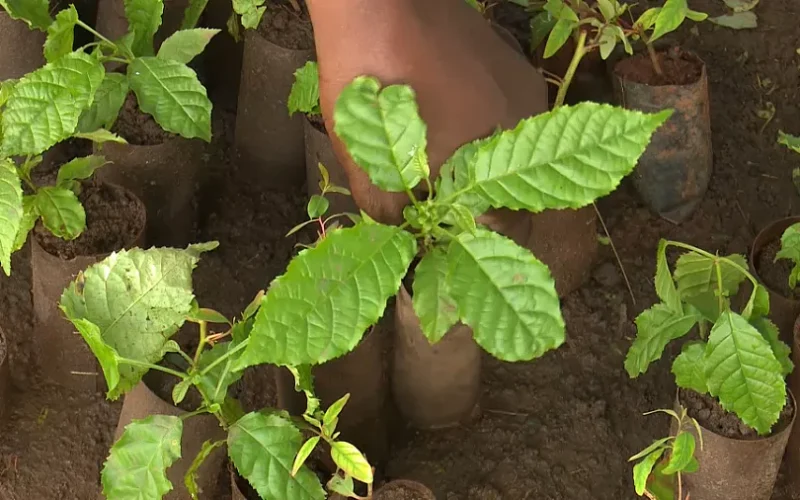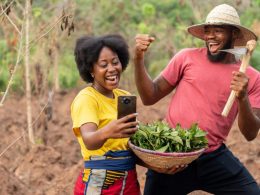By Mark Kawalya
Ugandan agriculture scientists have invented a type of biodegradable plastic that will be used in wrapping nursery seedlings. The plastic is made from farm waste and has been designed to phase out non-biodegradable plastics that are commonly used across the country by people in the seedling nursery business.
The biodegradable plastic was unveiled by scientists from the National Agricultural Crop Resources Research Institute (NaCRRI) as they released their findings about turning agricultural waste into an eco-friendly material that could have a large-scale impact.
The head of the biochemistry unit at NaCRRI, Dr. Ephraim Nuwamanya said that the invention was the result of a collaboration with the University of Bangor, UK, and is the result of a 10-month funding of £80,000 (about Shs369m) from the government of the United Kingdom.
“There is an extensive need to produce biodegradable plastics that have the ability to decompose in a short period of time, hence saving the environment,” said Nuwamanya, adding that nursery seed operators are using millions of tonnes of plastic, which they later dump in farmlands, leading to soil degradation.
Nuwamanya added that raw material sources for the biodegradable plastics include agricultural waste such as cassava and banana peels, wheat and rice straw among others.
According to statistics from the National Agricultural Research Organization (Naro), Uganda produces about 1.4 million tonnes of agricultural waste that results from the processing of 6.5 million vegetables along with other forms of farm residue. This was one of the driving forces for NaCRRI scientists to develop a feasible method of processing this waste into a material that is useful and environmentally friendly.
According to information from NaCRRI, the biodegradable plastics, upon entering the soil, after they have been planted as containers for seedlings, degrade after six months.
When the project kicks off on a mass scale, it will also be a source of income for farmers because waste from their farms will be purchased from them. The plastics are partly made from Tithonia Diversifolia plant giving them insect repelling abilities against pests like termites.








